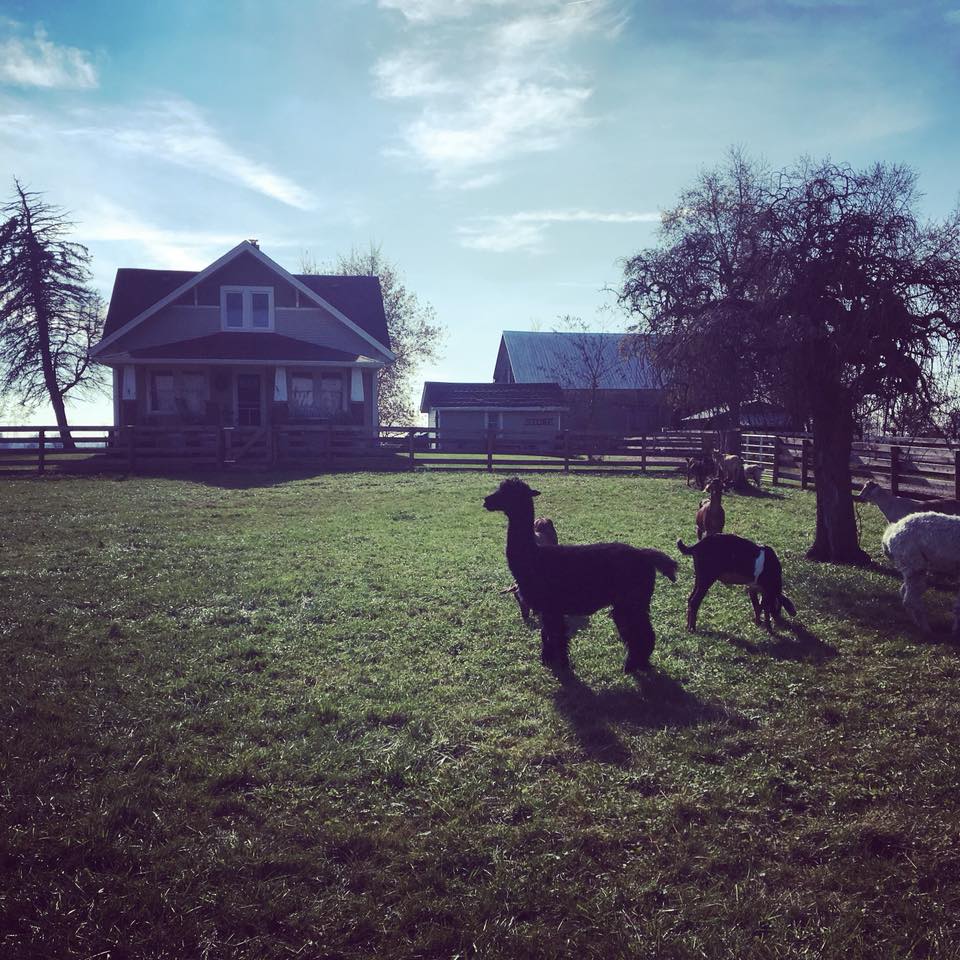By Sherri Dugger
Dugger Family Farm
“So many friends and family … they want to come here, hang out, bring kids, eat the food … but really have no clue what it takes to make it happen.”
So began a Sunday morning text message from a friend who runs a family farm very similar to the one my husband, Randy, and I run, which we call Dugger Family Farm. She and I have become good friends over the few years that we have known one another. We can relate to one another’s journeys. We each purchased our properties around the same time. We came to many of the same conclusions about what we would do. We would care for animals, the land, and people—ourselves and our neighbors. We would raise and sell local foods. We would support our community. We would use our properties as sources of inspiration and education.
Randy and I moved to this property with little vision of what it might become. We renovated the house and quickly realized we would need infrastructure. Randy has built a small barn, a greenhouse, a shed, and a shop. He restored a one-car garage so that we could turn it into a local food store, and he is in the process of turning a milkhouse into a guest bathroom. We have installed pasture fencing, purchased a shed where the goats now sleep, and we continue to clean the grounds, ridding them of what appears to be the remnants of years of neglect. Everything we have done as time, money and energy has allowed—none of which we have in abundance.
Many lessons have accompanied the building out of this farm: We have learned where to find grant money, how to apply for that money (and how to accept getting turned down for it), where to buy the best seeds and plants, how to deal with weeds and pests, what food safety regulations apply to our operation, what permits we need, what legislation matters to us, and more. I now understand that, as a farm owner, I not only must tend to plants, animals, and land, but I also must operate a business, develop relationships, market our offerings, tell our story and stay up-to-date on current policy.
Most farmers and local food entrepreneurs I meet don’t understand the importance of that last point. Operations can be wiped out because of policy that doesn’t support them, or—even worse—directly opposes them. Wisconsin, for instance, lost 500 of its dairy farms last year, thanks, in part, to bad policy. I’ve heard reports that the current rate of Wisconsin dairy farms closing sits around 11 farms per week. Wisconsin is one example of many such realities.
What we also didn’t know: We would change our minds a thousand times. For years, we discussed establishing a non-profit animal rescue. Then a trusted advisor quickly talked us out of that. We’ve sold eggs, microgreens, jams, and vegetables—but none in high enough quantities to sustain our operation. We’ve explored the ideas of starting a flower farm (that was just in my head, really), becoming an event venue (still might), offering an outdoor classroom (this would be lovely), and building a commercial kitchen (way too expensive).
For now, we are what we are. We care for alpacas, goats, bees, chickens, cats and dogs. We sell local food in our store. We tend to the land, and we do a great deal of work in the policy realm. All of that feels good. And right.
My friend and I continued our Sunday morning chat via text by offering words of encouragement. “I can’t believe how many times our plans have changed over the years,” I wrote. “Learn to accept that you won’t do everything you dream of doing. Letting go of some of those dreams has actually been freeing for me. I’m happier with the farm when I expect less from it.”
The most surprising lesson of all is maybe the best one I’ve taken from our moving to the country thus far: Letting go isn’t giving up. I’ve accepted that this farm may never look anything like what I once thought it could. When I walk the property, I’m overwhelmed by all that we’ve accomplished here. We are living in the midst of unimagined success. This tiny 3½-acre property now teems with life. We have planted hundreds of trees. We have taken in dozens of animals. We have created a home … for ourselves and for all that we love. A farmer’s life is often difficult. It is always unpredictable. When we purchased this property, I should have known the hardships and surprises that would accompany it. This is farm life, after all. I should have expected nothing less.


